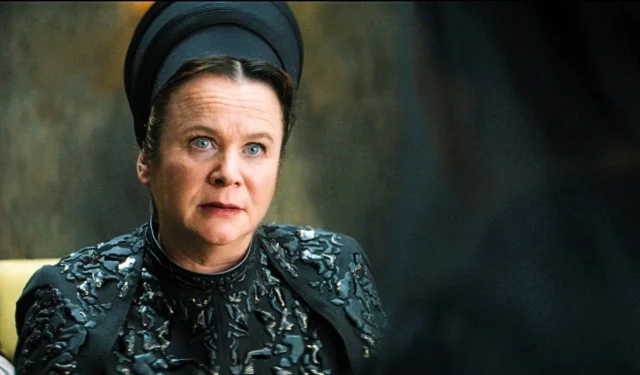
The first season of HBO’s Dune: Prophecy has come to a close, prompting a critical assessment of its shortcomings. Following Denis Villeneuve’s cinematic adaptations of Frank Herbert’s iconic novel, the Dune franchise gained renewed attention, seamlessly marrying entertainment with cinematic artistry. With two successful films garnering critical acclaim and notable box office returns, it was no surprise that Warner Bros. opted to explore an ambitious, high-budget spinoff series focusing on one of the franchise’s most intriguing factions: the Bene Gesserit. Unfortunately, the series received mixed responses, achieving only a 70% rating on Rotten Tomatoes and an even lower 66% Audience Score.
While Dune: Prophecy had enormous potential, it ultimately fell short of its predecessors and even of the HBO juggernaut Game of Thrones, which served as a primary influence for this new series. Although there’s hope for a strong return in a potential second season, it’s crucial to acknowledge both the behind-the-scenes challenges and the shortcomings present in the show itself. The current consensus indicates that this adaptation has not yet fulfilled the vast potential offered by the Dune franchise.
The Impact of Denis Villeneuve’s Absence
Denis Villeneuve Prioritized the Dune Films
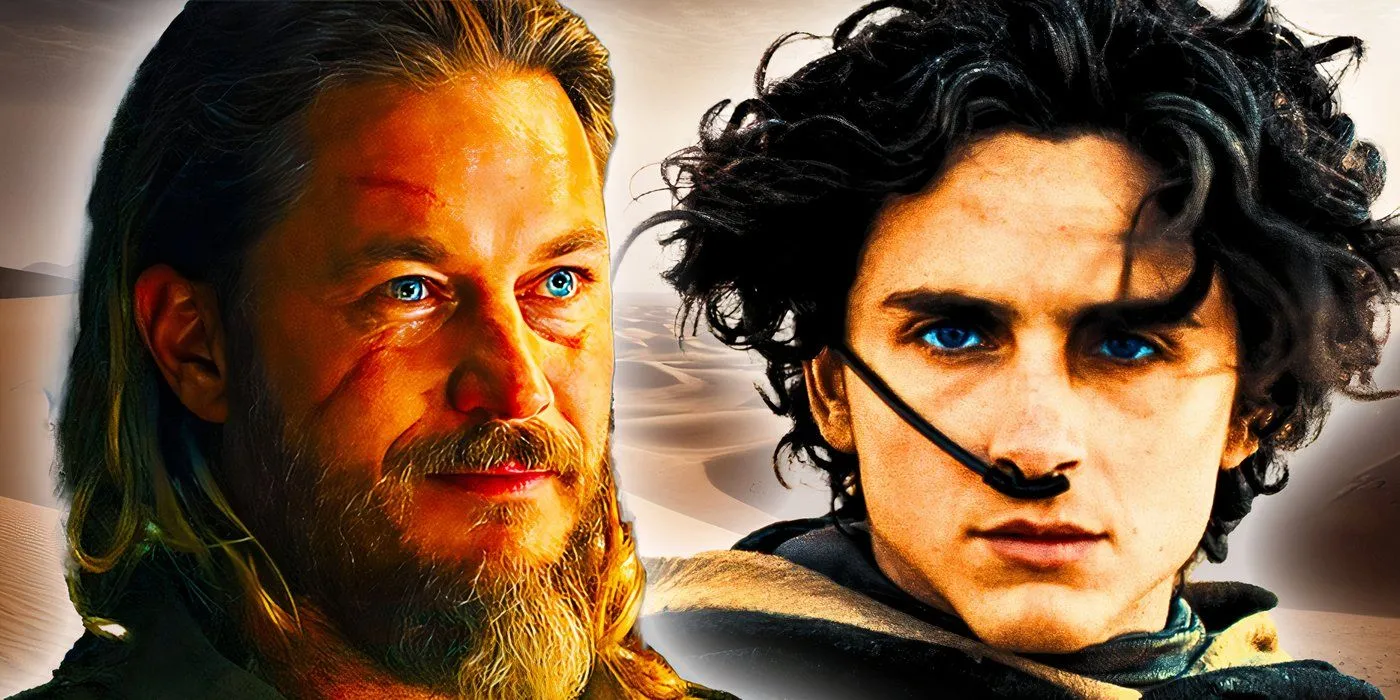
Denis Villeneuve has become synonymous with the Dune franchise, having expertly adapted a narrative previously thought too complex for the screen. His cinematic storytelling has drawn comparisons to Peter Jackson’s acclaimed adaptation of The Lord of the Rings. While the television series maintained HBO-level production values, it fell short of the exquisite visual brilliance Villeneuve and cinematographer Greig Fraser typically deliver.
Initially attached to the Dune series in 2019, Villeneuve was set to direct the pilot episode and serve as a producer for the show (as detailed in Variety). His departure ultimately meant that the series would lack the cohesive vision that might have created a stronger connection to the films. Rotten Tomatoes’ critics consensus highlighted this gap, remarking that the series “lacks the spice of Denis Villeneuve’s films,”clearly underscoring the perceived drop in quality.
Behind-the-Scenes Struggles and Production Woes
Development Challenges for Dune’s HBO Series
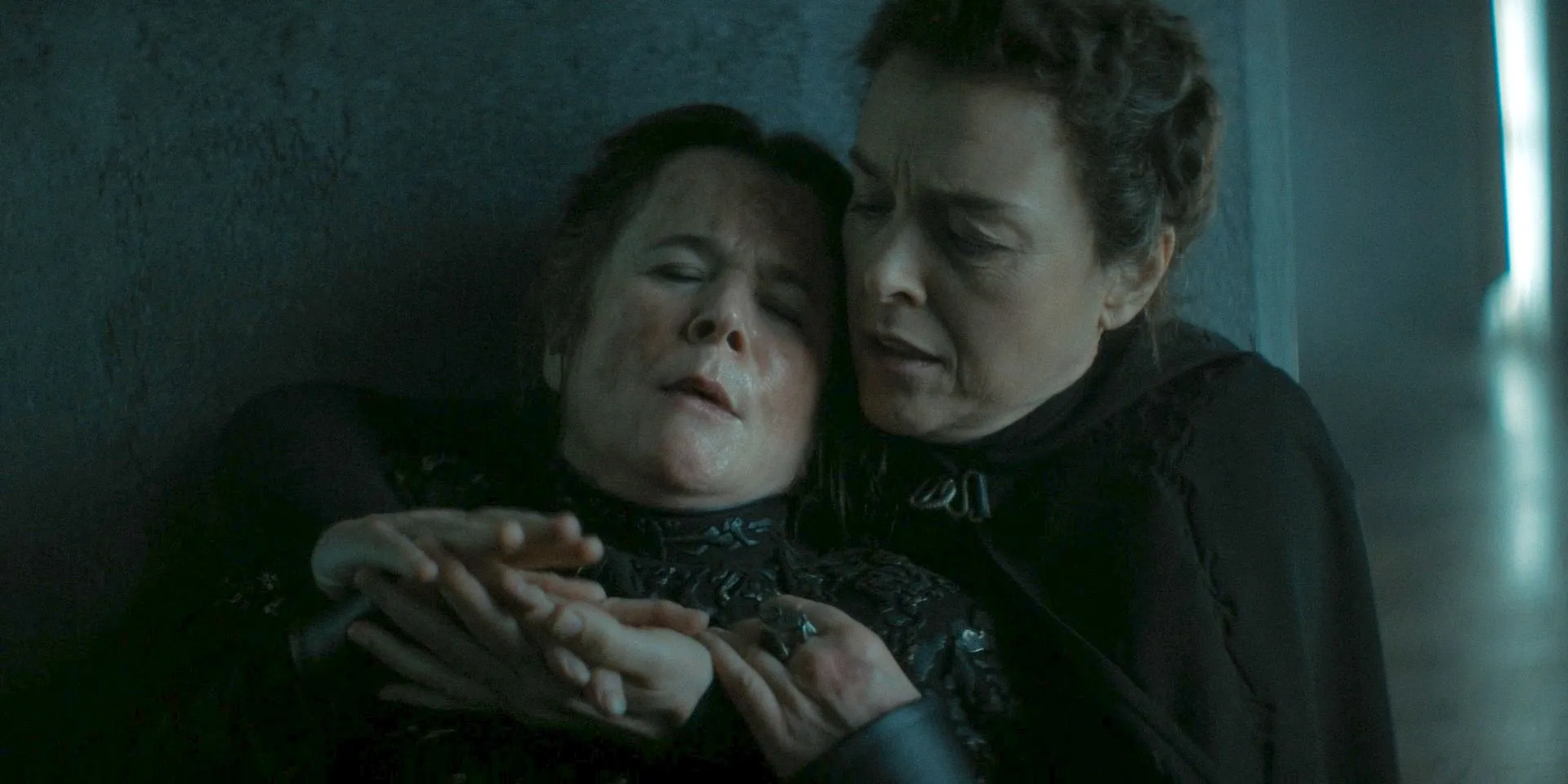
Image via Max
Development of Dune: Prophecy began in 2019, but the series encountered multiple challenges that hindered its progress and quality. Criticism emerged early on regarding the lack of female representation in the production team, particularly concerning a series centered on the female-led Bene Gesserit (per TOR). This feedback prompted the involvement of Dana Calvo as a co-showrunner. Original showrunner Jon Spaihts faced mounting pressure and was eventually ousted from the project, as noted by The Hollywood Reporter, indicating discontent from Legendary TV regarding his early contributions. Such developmental hiccups likely contributed to the series’ uninspiring first season.
The Challenges of Adapting Non-Canonical Dune Works
The Expanded Dune Books Lack the Original’s Allure
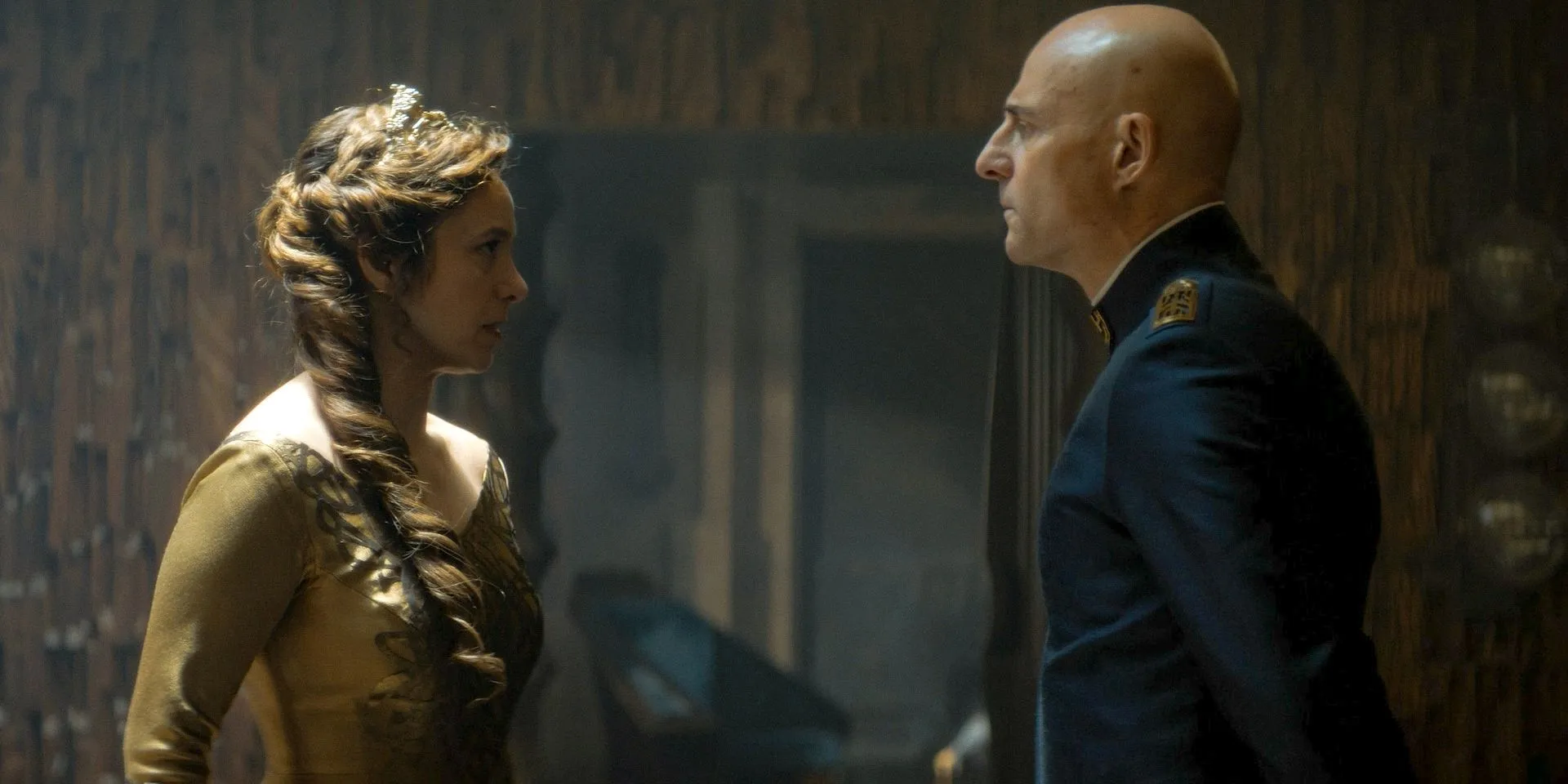
The Dune literary universe is intricate, but there is significant debate among fans about which works are considered “canon.”Frank Herbert penned six volumes that are generally accepted as the traditional storyline, while his son Brian Herbert, alongside Kevin J. Anderson, expanded the universe through numerous novels. Though these additional books have their merits, they frequently lack the depth and nuance found in the original series. Dune: Prophecy pulls from the 2012 novel Sisterhood of Dune but incorporates new concepts and storylines that may not resonate as powerfully with long-time fans.
The Bene Gesserit: The Case for Mystique
The Bene Gesserit Benefit from Their Enigmatic Nature
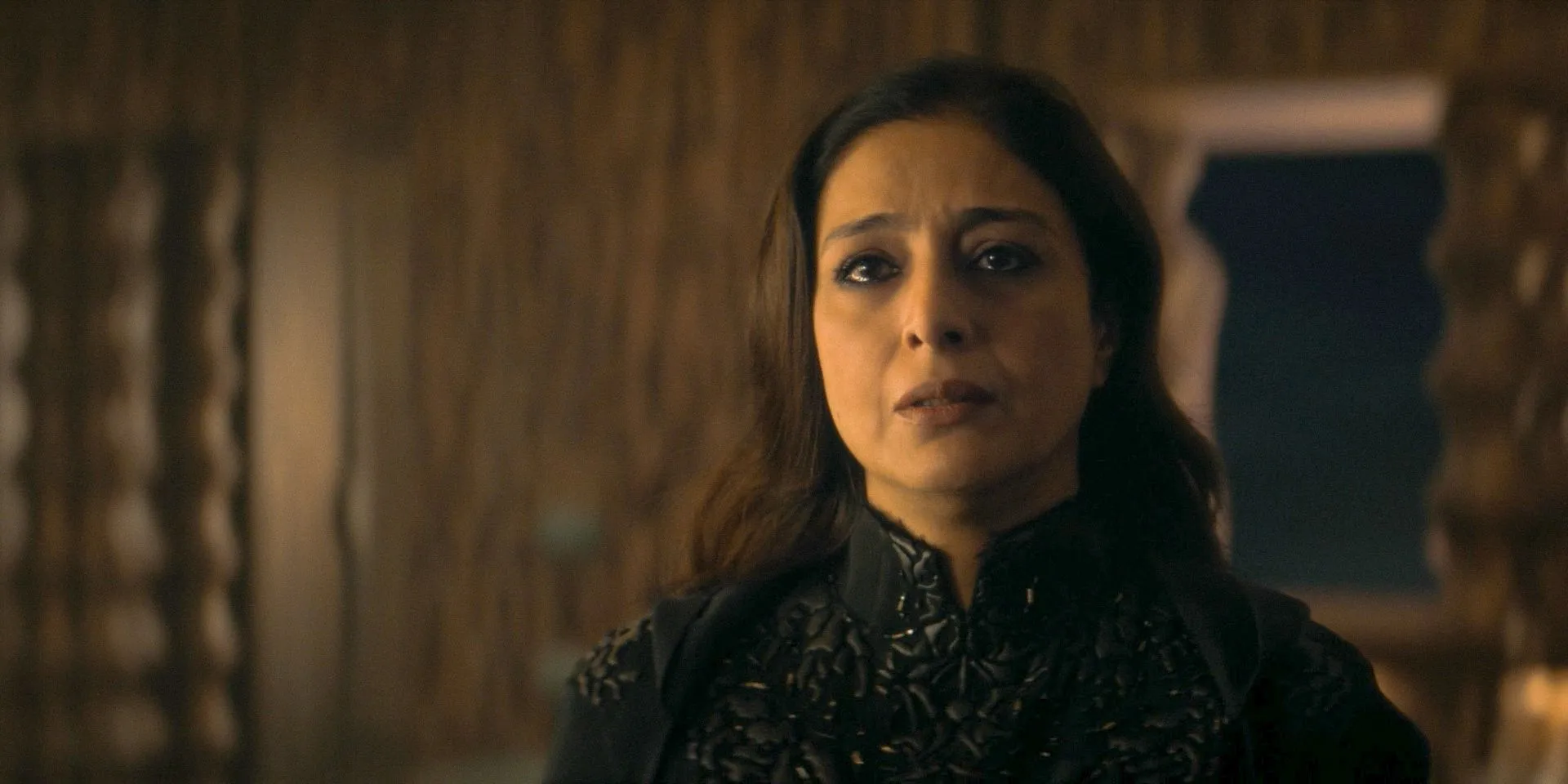
In constructing a captivating sci-fi or fantasy universe, the element of mystery is essential. Viewers need to feel a connection to a world larger than themselves. This mystique is part of what makes the Bene Gesserit so fascinating—they represent an influence that is both visible and obscured, potentially holding profound secrets just beyond grasp. This inherent enigma is what captivates audiences in the original literature and films. When their mystery diminishes and the focus shifts to their narratives, it detracts from the initial allure.
Art often thrives on ambiguity. Consider the Force from Star Wars; its original portrayal as an elusive power is compelling, yet the introduction of midi-chlorians in The Phantom Menace reduced its appeal by stripping away its mystique. Similarly, when the Bene Gesserit’s enigma is unraveled and their motives laid bare, they risk losing the intrigue that makes them compelling.
Strong Cast Hampered by Insufficient Character Development
Six Episodes Aren’t Enough for Meaningful Character Development
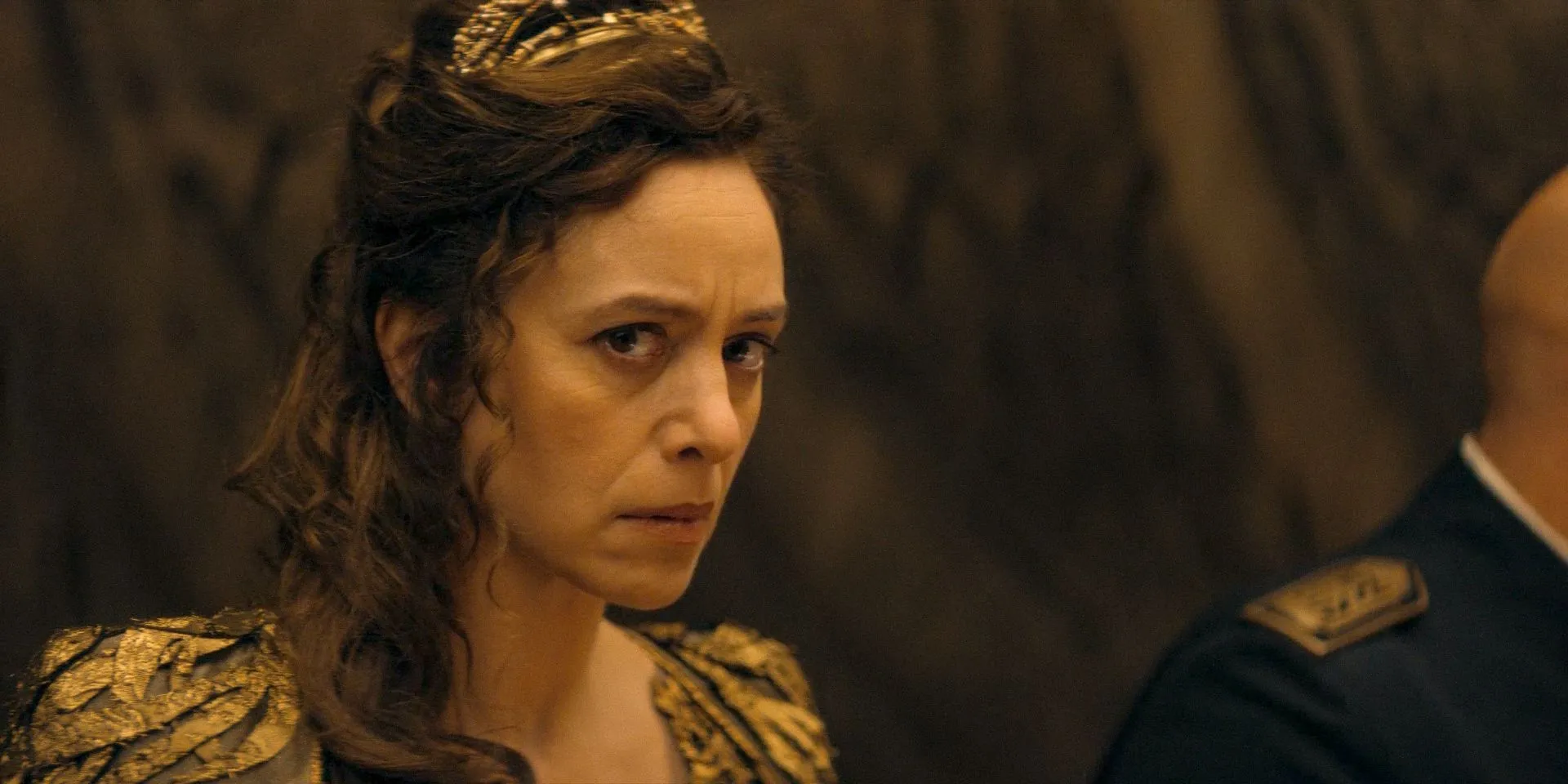
Even with a roster of remarkable talent, including Olivia Williams, Emily Watson, and Mark Strong, Dune: Prophecy struggles to create well-rounded, engaging characters. Across just six episodes, the series outlines various characters’ goals and aspirations but fails to breathe life into them.
Iconic moments from the Dune films, such as unexpected humor and character interactions, contribute to a sense of a vibrant, lived-in world. However, the constraints of six episodes stifle the opportunity for meaningful character engagement. While the show’s dialogue propels the plot forward with clarity, the lack of distinct personalities makes it challenging for viewers to connect emotionally. As a result, the stakes referred to throughout the story lack impact without a deeper connection to the characters involved.
In conclusion, to enhance future seasons, Dune: Prophecy must delve deeper into its characters, maintain a unique visual style, and reinvigorate the mystique of its central themes.
Sources: Variety, TOR, The Hollywood Reporter




Leave a Reply